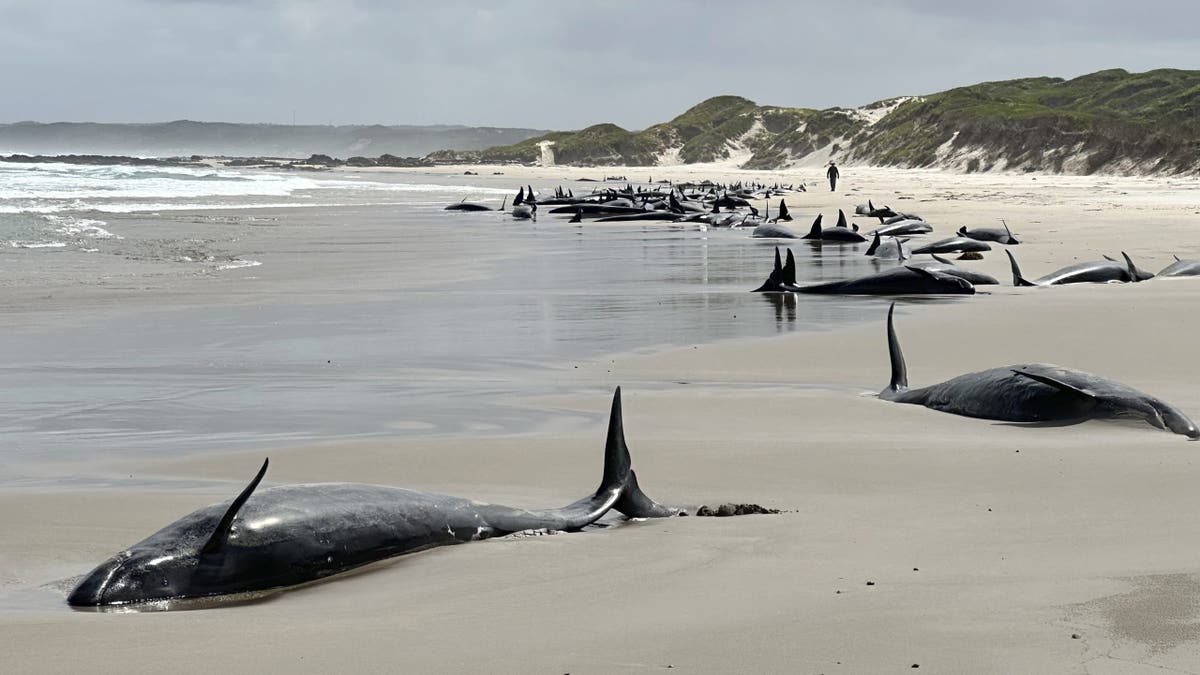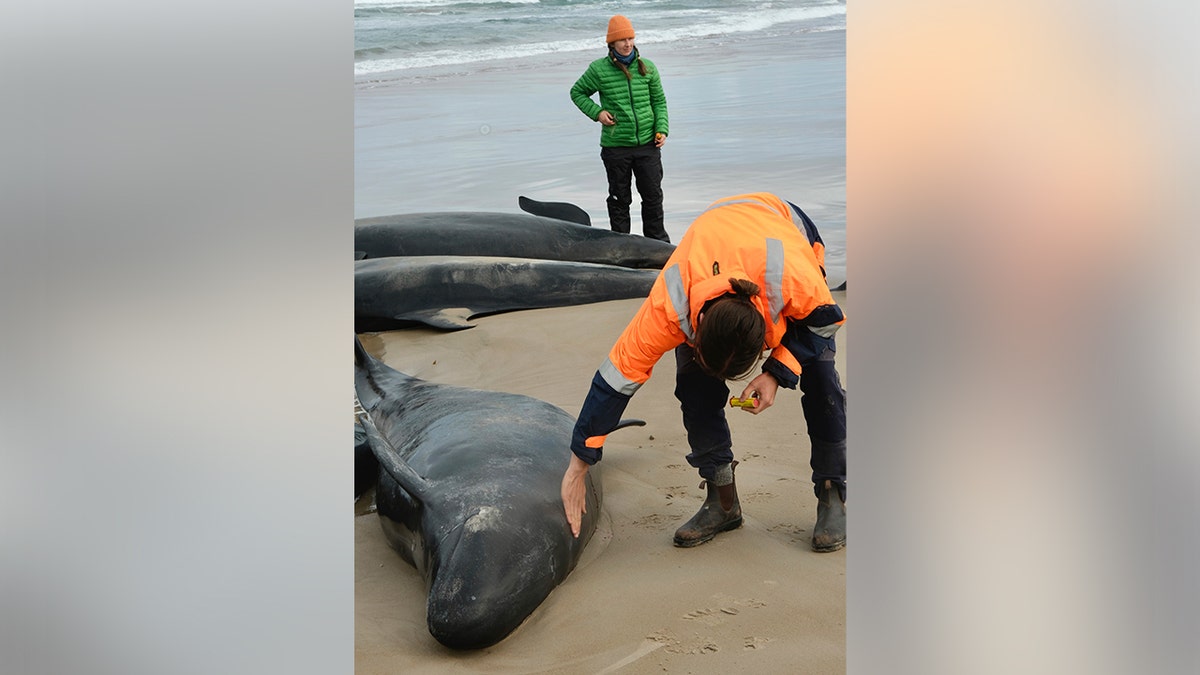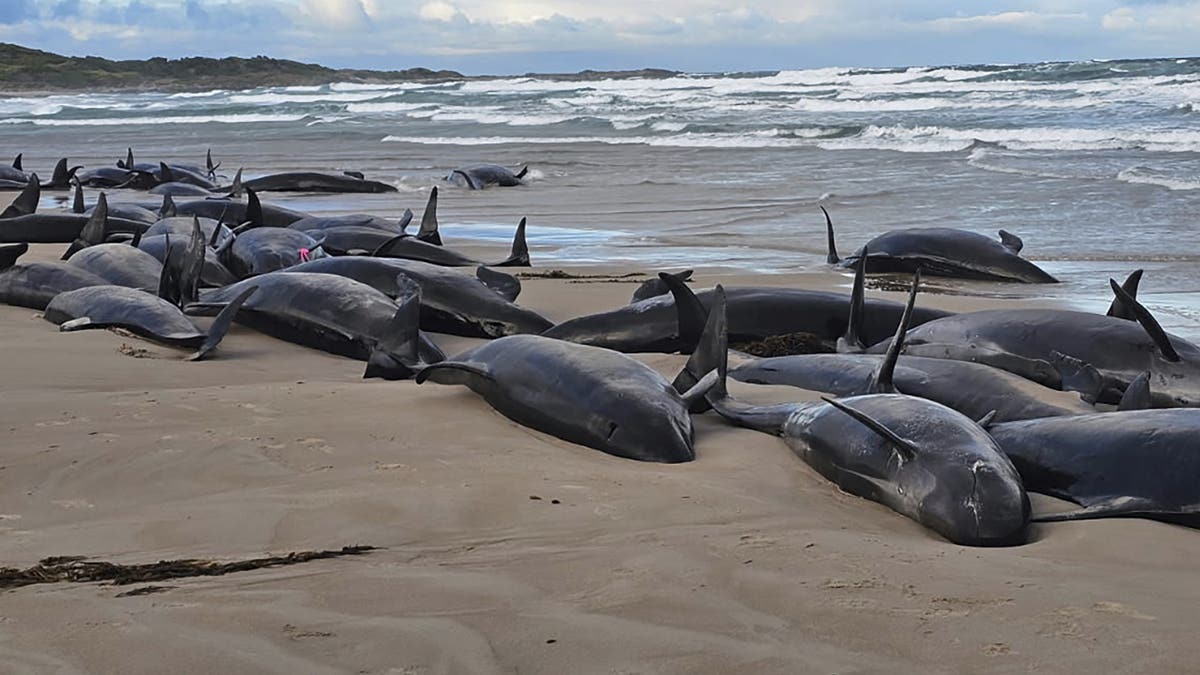Over 150 false killer whales met a tragic fate on a remote Tasmanian beach, with rescue attempts ultimately abandoned due to relentless ocean conditions and the animals' continuous re-stranding. Experts, including veterinarians, arrived at the scene near the Arthur River on Tasmania’s northwestern coast on Tuesday afternoon after the whales were discovered stranded on the exposed surf beach. The Department of Natural Resources and Environment confirmed the initial count of 157 whales.
Incident controller Shelley Graham stated that the adverse weather and sea conditions, which hampered rescue efforts on Wednesday, were predicted to continue for several days. “We attempted to refloat two whales this morning, but the ocean conditions prevented the animals from getting past the break. They kept re-stranding,” Graham explained in a statement.
Marine biologist Kris Carlyon delivered the somber news that the surviving whales would be euthanized. “The longer they are stranded, the more they suffer. All other options have failed,” Carlyon stated.

This image, courtesy of the Department of Natural Resources and Environment Tasmania, reveals a portion of the over 150 false killer whales stranded near Arthur River, Tasmania, on February 19, 2025. (NRE via AP)
The department initially reported 136 surviving whales on Wednesday morning, but that number dwindled to 90 within hours. The remote location, challenging ocean conditions, and difficulties transporting specialized equipment to the area significantly complicated the response.
These whales, members of the dolphin family despite their name, range in weight from approximately 1,100 pounds for juveniles to 3.3 tons for adults.

With all other rescue avenues exhausted, the surviving whales face euthanasia. (NRE via AP)
Department liaison officer Brendon Clark noted that this was the first false killer whale stranding in Tasmania since 1974, when over 160 whales beached near Stanley on the northwest coast. Pilot whale strandings are more common in the region.
Clark refrained from speculating on the cause of this stranding, indicating that examinations of the deceased whales might offer some insights. A helicopter survey on Tuesday afternoon confirmed no other whales within a 6-mile radius of the stranded pod. Some whales may have been stranded for up to 48 hours by Wednesday morning.
Local resident Jocelyn Flint recounted her son's discovery of the stranded whales around midnight while shark fishing. She visited the site both before and after dawn, but the sheer size of the whales made refloating them impossible. “The surging water and the whales' thrashing were heartbreaking. They’re dying, sinking into the sand,” Flint lamented on Wednesday morning. “It's too late, I fear. There are even calves among them. It's a devastating sight.”

False killer whales stranded near Arthur River, Tasmania. (Jocelyn Flint via AP)
This incident follows a 2022 stranding of 230 pilot whales further south on Tasmania's west coast at Macquarie Harbor. Australia’s largest mass stranding occurred in the same harbor in 2020, involving 470 long-finned pilot whales. Most of the whales perished in both events. While the exact reasons for such strandings remain elusive, potential factors include disorientation from loud noises, illness, old age, injury, predator evasion, and extreme weather.
Comments(0)
Top Comments